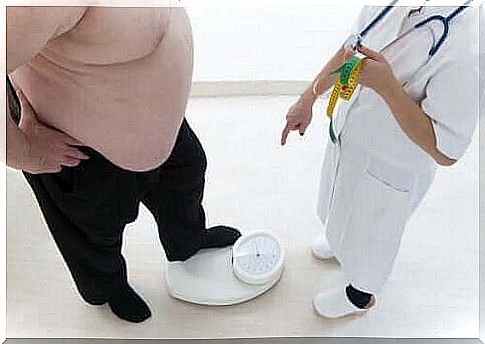What You Should Know About Diet Pills

There are many myths and misinformation about diet pills. Unfortunately, the pharmaceutical industry has popularized a number of drugs that promise to help people lose weight, but which are not effective or can be harmful to health. After all, diet pills are just drugs. Therefore, they can only be prescribed by a doctor who has evaluated and determined whether they are appropriate for each individual case, depending on many factors.
We should also note that diet pills are not a magic bullet. Losing weight is a complex process that requires effort on many fronts. Although medication can help, it is of little use if the patient also does not have a proper diet and exercise.
What you should know about diet pills

The first thing we must say is that the doctor never prescribes diet pills for aesthetic reasons. Second , none of these medications have been proven more effective than a systematic and controlled diet and exercise regimen.
With that said, we should note that many of these pills act on the central nervous system, where they inhibit complex circuits in the hypothalamus that regulate hunger and satiety. In other words, they help you feel less hungry. On the other hand, drugs that have a diuretic or laxative effect will help accelerate combustion. You can also find so-called “fat burners” on the market, which are sold in supermarkets or pharmacies and which have no scientific evidence behind them.
A patient profile
Diet pills are not suitable for everyone. First, pregnant or lactating women should not use them. Experts also do not recommend the use of diet pills for minors. Under no circumstances should they be taken without medical advice.
Doctors recommend such medications when patients meet the following criteria:
- They are diagnosed with obesity. A doctor has classified a patient with obesity because their weight is 20% higher than their ideal weight according to their height or shape. Usually this means a BMI, or body mass index, of 30 or higher.
- They have a lower BMI, but also a concomitant disease. These are cases when a BMI does not reach 30, but is over 27 and the patient has problems such as diabetes, sleep apnea or high blood pressure. In these cases, it is sometimes appropriate for them to be prescribed these medications.
However, it should be noted that pills are never the first choice of treatment. Doctors only prescribe them if the patient has followed a diet and an exercise regimen for a period of three to six months and could not lose more than 5% of body weight during this time. The person must also be motivated and committed to losing weight by using all necessary means.
The side effects of using diet pills

Like all other medications, diet pills also have side effects that can vary from person to person. These are usually mild symptoms such as diarrhea, constipation and / or nausea, which tends to subside over time.
Some pills, such as phentermine, benzphetamine, diethylpropion and fendimetrazine can cause difficulty sleeping, nervousness or restlessness, as well as headaches and high blood pressure. In only a few cases have other side effects been reported with the use of these medicines, which include:
- Yellow pigmentation in the eyes and / or skin
- Dark urine
- Pale stools
- Itchy skin
- Abdominal pain
- Lack of appetite
Precautions on diet pills
It is important to note that some of the products that are sold at the pharmacy and are promoted as slimming products are unsafe because they do not hold up in science. Therefore, they are non-prescription. Some of these products, especially those containing ephedra, ephedrine or caffeine, have been linked to seizures, heart attacks, strokes and sudden death. Therefore, it is advisable to consult your doctor before starting to take them.
Prescribed slimming products lose their effect when the patient stops taking them. Therefore, it is highly likely that these patients will gain weight again if they stop taking these medications without proper diet and lifestyle. Therefore, patients must maintain a healthy diet and exercise routine at all times to support permanent weight loss.









